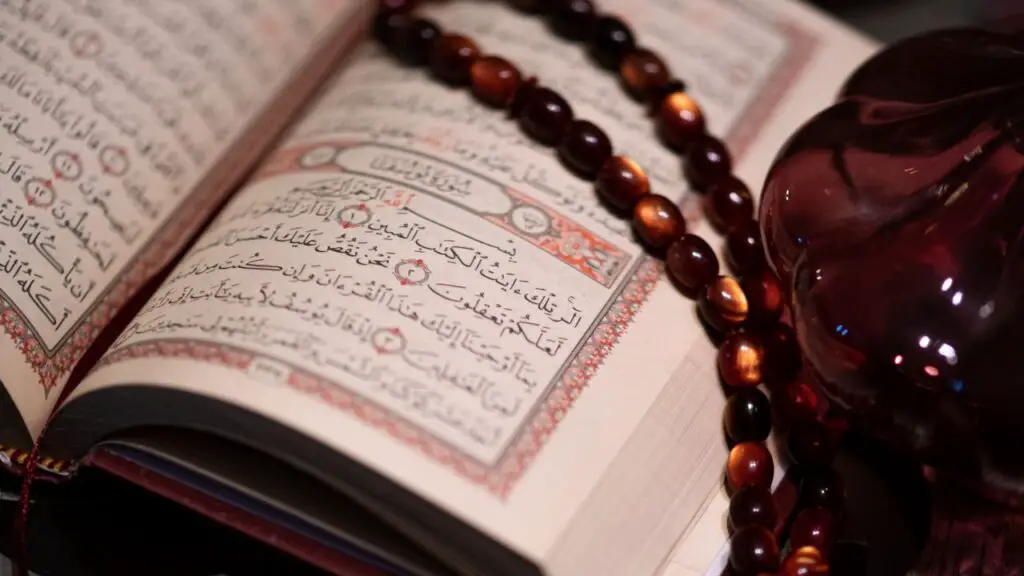Surah Maun | Acts of Kindness |107th chapter |2023

Surah Maun
Surah Al-Ma’un is the 107th chapter (surah) of the Quran, which is the holy book of Islam. It is also known as “The Small Kindnesses” or “The Small Acts of Charity.” This surah consists of seven verses and is a part of the 30th Juz (section) of the Quran.
More Articles
- What Surah to Read on Friday?
- Surah Kafirun | Meaning | Importance | Islamic Article | 2023
- Al Qaeda Definition in islam : Persistent Threat to Global Security
- Surah Yaseen | Importance | Meaning | Islamic Article | 2023
Introduction
Surah Al-Ma’un, also known as “The Small Kindnesses” or “The Small Acts of Charity,” is the 107th chapter of the Quran. Despite its brevity, this surah carries profound lessons about the importance of compassion, empathy, and selflessness in the lives of believers. In just seven verses, Surah Al-Ma’un encapsulates the essence of Islamic teachings on charity and social responsibility. This article explores the significance and lessons of Surah Al-Ma’un, emphasizing the transformative power of small acts of kindness.

Surah Al-Ma’un: An Overview
Surah Al-Ma’un consists of seven short verses that are recited frequently by Muslims in their daily prayers. It is a Makki surah, meaning it was revealed in the early years of Prophet Muhammad’s mission in Mecca. The surah addresses various aspects of human behavior and society, focusing primarily on the moral and ethical dimensions of human interaction.
The Rejection of Neglectful Worship
“Have you seen the one who denies the Recompense? For that is the one who drives away the orphan, and does not encourage the feeding of the poor.” (Quran 107:1-3)
The surah begins by drawing attention to the attitudes and behaviors of those who deny the concept of a Day of Judgment. These individuals are portrayed as neglectful in their worship and devoid of a sense of accountability to a higher power. Their neglect extends to their treatment of the most vulnerable members of society, particularly orphans and the poor.
The Act of Neglecting the Orphan
“So woe to those who pray but who are heedless of their prayer – those who make show [of their deeds] and withhold [simple] assistance.” (Quran 107:4-7)
The surah goes on to condemn those who pray but remain heedless of the true purpose of prayer. It criticizes those who perform their religious duties for show and display but fail to provide even the most basic assistance to those in need.
Lessons from Surah Al-Ma’un
Surah Al-Ma’un serves as a powerful reminder to believers about the significance of genuine compassion, selflessness, and charity in their lives. It emphasizes the idea that true worship is not just about ritualistic acts of devotion but also about how one treats others, especially those who are less fortunate. Here are some key lessons that can be drawn from this surah:
- The Importance of Accountability: Surah Al-Ma’un underscores the concept of a Day of Judgment, where individuals will be held accountable for their actions. It serves as a reminder that our deeds, both in worship and in our interactions with others, will be evaluated, and justice will be served.
- The Priority of Kindness: The surah highlights the importance of kindness and compassion towards orphans and the poor. It challenges us to reflect on whether our actions align with these principles and whether we are actively contributing to the welfare of society’s most vulnerable members.
- Sincerity in Worship: While addressing the issue of neglectful worship, Surah Al-Ma’un emphasizes the need for sincerity and mindfulness in one’s religious practices. It encourages believers to approach their faith with humility and a genuine desire to please Allah, rather than seeking validation or recognition from others.
- Rejecting Hypocrisy: The surah strongly condemns hypocrisy, particularly in matters of faith and charity. It reminds believers that true faith is reflected not only in outward rituals but also in one’s actions and behavior towards others. It calls for consistency in one’s beliefs and actions.
What is Surah Al-Ma’un?
Surah Al-Ma’un is the 107th chapter (surah) of the Quran, which is the holy book of Islam. It is also known as “The Small Kindnesses” or “The Small Acts of Charity.” This surah consists of seven verses and is a part of the 30th Juz (section) of the Quran.
What is the theme of Surah Al-Ma’un?
The primary theme of Surah Al-Ma’un is to emphasize the importance of acts of kindness, compassion, and charity in the lives of believers. It condemns neglectful worship and insincerity in religious practices while highlighting the significance of helping the orphan and feeding the poor.
What does the surah say about neglectful worship?
Surah Al-Ma’un criticizes those who perform their religious duties but are heedless of their prayers and worship. It suggests that true worship is not just about rituals but also about the sincerity and mindfulness with which one approaches their faith.
Who are the vulnerable groups mentioned in Surah Al-Ma’un?
The surah mentions two vulnerable groups: orphans and the poor. It condemns those who neglect or mistreat these individuals, highlighting the importance of assisting and supporting them.
How does Surah Al-Ma’un relate to charity in Islam?
Surah Al-Ma’un underscores the concept of charity (sadaqah) in Islam by emphasizing the need for acts of kindness and assistance to the less fortunate. It teaches that genuine faith is reflected not only in rituals but also in how one treats others, especially those in need.
The Transformative Power of Small Acts of Kindness
One of the most compelling aspects of Surah Al-Ma’un is its focus on “small” acts of kindness. The surah does not emphasize grand gestures or extravagant charity; instead, it draws attention to the neglect of even the most basic and simple forms of assistance. This highlights the idea that kindness, regardless of its scale, can have a profound impact on individuals and society as a whole.
Small acts of kindness can be transformative in several ways:
- Cultivating Empathy: Engaging in small acts of kindness helps individuals develop empathy and a deeper understanding of the struggles and needs of others. It fosters a sense of connection and solidarity within the community.
- Nurturing a Giving Spirit: Regularly practicing small acts of kindness instills a habit of giving and sharing. It reminds individuals that they can make a difference in the lives of others, even through modest gestures.
- Creating Positive Change: Cumulatively, small acts of kindness can bring about positive change within society. When individuals collectively engage in acts of charity and compassion, it contributes to the welfare and upliftment of the marginalized.
- Reflecting Islamic Values: Surah Al-Ma’un aligns with core Islamic values of charity (sadaqah), which encourages Muslims to give in various forms, regardless of the amount. Small acts of kindness, such as helping a neighbor, feeding the hungry, or assisting the elderly, exemplify these values.
Applying the Lessons of Surah Al-Ma’un
To apply the lessons of Surah Al-Ma’un in our lives, we can consider the following practical steps:
- Self-Reflection: Regularly reflect on our actions and intentions, both in worship and in our interactions with others. Are we truly sincere in our worship, and are we actively seeking opportunities to help those in need?
- Acts of Kindness: Make a conscious effort to engage in small acts of kindness on a daily basis. This could include checking on elderly neighbors, donating to local charities, or simply offering a helping hand to those who require it.
- Fostering Empathy: Strive to develop empathy by actively listening to the stories and experiences of others. This can deepen our understanding of their challenges and motivate us to offer support.
- Community Involvement: Get involved in community initiatives and projects that address the needs of the less fortunate. This could involve volunteering at a local food bank, participating in outreach programs, or supporting educational initiatives for orphans.
Conclusion
Surah Al-Ma’un serves as a concise yet powerful reminder of the importance of compassion, selflessness, and sincerity in our lives as Muslims. It underscores the significance of small acts of kindness and charity and their potential to bring about positive change within society. By internalizing the lessons of this surah and actively applying them in our daily lives, we can strive to be better individuals and contribute to the betterment of our communities. Ultimately, Surah Al-Ma’un calls on believers to be not only people of faith but also people of action and empathy, dedicated to the well-being of all members of society, especially the most vulnerable among us.
Faqs About Surah Maun
What is the historical context of Surah Al-Ma’un?
Surah Al-Ma’un is a Makki surah, meaning it was revealed during the early years of Prophet Muhammad’s mission in Mecca. During this time, the Prophet and his followers faced persecution and were striving to establish the principles of justice, compassion, and social responsibility.
How can one apply the lessons of Surah Al-Ma’un in daily life?
To apply the lessons of Surah Al-Ma’un, one can engage in regular self-reflection, practice acts of kindness and charity, foster empathy for others, and get involved in community initiatives that support the less fortunate. It calls on believers to not only have faith but also to actively demonstrate compassion and sincerity.
Is Surah Al-Ma’un frequently recited by Muslims?
Yes, Surah Al-Ma’un is often recited by Muslims in their daily prayers. Its brevity and powerful message make it a convenient and meaningful addition to regular recitations.
Are there any other names for Surah Al-Ma’un?
Yes, Surah Al-Ma’un is also known by its English translations, such as “The Small Kindnesses” or “The Small Acts of Charity.” These names reflect the surah’s central theme of emphasizing the importance of small, compassionate gestures.
Is Surah Al-Ma’un relevant to contemporary society?
Yes, Surah Al-Ma’un remains highly relevant in contemporary society as it addresses fundamental principles of kindness, compassion, and social responsibility. Its message of helping the vulnerable and performing acts of charity transcends time and remains a valuable ethical guideline for individuals and communities today.





